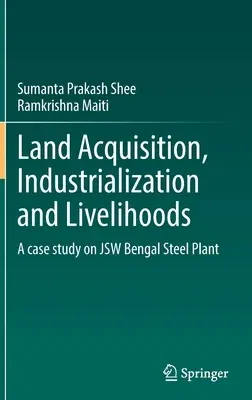This book provides an assessment of the impacts of human intervention on
the natural environment and peoples' livelihoods through land-use
conversion due to industrialization. Problems of land acquisition and
the execution thereof have varying consequences that depend on the
specific geographical as well as socio-political contexts in which they
occur. This book covers a specific study of JSW Bengal Steel Ltd., which
in 2014 planned to set up a 10.0 million ton per year integrated steel
plant at the upper catchment of Sundra basin, the tributary of the
Shilabati that ultimately pours to the river Rupnarayan, located at
Salboni Block of Paschim Medinipur, West Bengal, India. The project was
ultimately put on hold, but caused many lingering environmental and
socioeconomic problems due to the acquisition of formerly productive
lands. The book examines this case to generate a database on the
different aspects of land acquisition and its negative impacts on the
geomorphology and hydrological of non-timber forest products,
agricultural impacts resulting in livelihood changes, policy dimensions
of land acquisition, and the impacts of delays in project implementation
through a comparative analysis between projects-affected areas and
non-project areas. The book will appeal to environmental managers and
industry workers, as well as students and researchers in environmental
economics, anthropology, and human geography.

